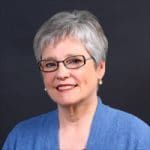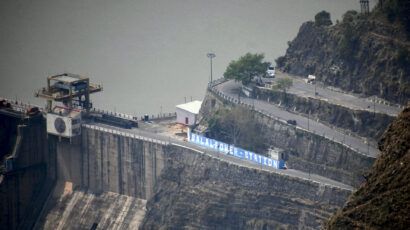Mind the gaps between climate science and social policy
By Kennette Benedict | July 16, 2012
With temperatures topping 100 degrees Fahrenheit this month in Chicago, thoughts turn to global warming. Whether any particular extreme weather event could be a symptom of climate change is difficult to say. Even higher-than-normal regional temperature patterns may not be direct evidence of the planet’s warming overall. Climate models cannot forecast changes in temperature or rainfall at local levels. All they can tell us is that on average Earth’s temperature is gradually rising and that the rise in temperature will have cascading effects on global weather, rainfall patterns, growing seasons, species’ survival, and the habitats we depend upon for our own survival. But climate models can’t tell us exactly where and how the effects — or the symptoms — will be felt. Climate science can be frustrating.
Still, from years of careful study of Earth and ocean temperatures, atmospheric chemistry, and ice cores, among other data, we know a great deal about global warming. Scientists are observing rapid changes in nearly every corner of the world and are forecasting continued heating of the air and water unless emissions of carbon dioxide and other greenhouse gases are substantially reduced. So, we understand the cause; but we’re not willing to take “the medicine” that will remedy the situation. It is as if a doctor had made a diagnosis of cancer and provided choices of alternative treatments, but because treatment costs money, will disrupt our daily routines, and can’t be guaranteed to cure us, we ignore the information and go on our merry way — until we die prematurely.
There are differences, of course, between the doctor’s prognosis of early death and the scientists’ forecast of runaway climate change. Climate change is far worse. The “disease” of global warming does not just affect us individually; it affects others around the world and will be much harder on our children and grandchildren than it is on us. And unlike cancer, where causes are often murky, environmental scientists know the cause of global warming, have observed steadily rising global and ocean temperatures for nearly a century, and have arrived at an overwhelming consensus about the diagnosis, prognosis, and treatment — all before we have experienced the most overt symptoms.
So, what will it take for governments, political leaders, industry, and citizens to act on the evidence and put on the brakes to stop global warming? What obstacles stand in the way of implementing policies that could work?
Gap between science and the public. Fundamental research on climate change — from observations of ocean temperature to inspecting ice cores to studying changes in hydrological cycles — depends on painstaking scientific measurements, interpretation, rigorous review, and debate that yields consensus at the Intergovernmental Panel on Climate Change. As science has become more professionalized — funded by large grants with results reported mainly to colleagues within the profession — it is more and more distant from ordinary people and their concerns.
Perhaps if scientists engaged farmers, fishers, hunters, gardeners, and local weather buffs to record observations to be fed into a large data-set, these amateur scientists — deeply invested in conserving friendly habitats themselves — could help bridge the gap between science and the public. Their traditional, experiential, and firsthand knowledge also could add to the understanding of regional changes. Such an approach would be good for science and might also help to develop new political constituencies for policy change.
Gap between climate sciences and social sciences. Academic specialization over the past 100 years has also created major gaps within and among scientific disciplines. While such divisions have led to much deeper knowledge about natural and social systems, they have also created barriers to exchanges of ideas — especially between the physical and natural sciences, on the one hand, and the social sciences, on the other. Specialization has also resulted in fewer experts who can take a “crude look at the whole,” as Nobel laureate Murray Gell-Mann puts it. The result is a growing gap between climate scientists and social scientists, especially economists. This gap may be the single most significant obstacle to addressing the planetary problem of global warming.
Climate scientists have identified carbon emissions as the major contributor to global temperature rise and have repeatedly called for sweeping overhauls in a global economy dependent on fossil fuels for energy. Realizing that wholesale change cannot be brought about by command and control, however, climate scientists have fixed their sights on raising the price of carbon emissions as the most efficient method of motivating change in energy markets and reducing emissions. A few economists chime in here and there, but given the threat to our way of life from the projected changes to Earth’s climate, we might expect that all economists would be turning their attention to the problem. Alas, with the exception of Elinor Ostrom, the Nobel prizes continue to go to those more interested in financial derivatives and labor markets than in energy markets and climate policy.
Gap between science and policy. Without serious attention from economists, who contribute disproportionately to policy formulation, it is difficult to see how the work of climate scientists will be translated into effective policy. And without a policy overhaul, changing the actions of industry and individuals on a scale large enough and fast enough to mitigate the worst effects of global warming is all but impossible.
To be fair, economic, as well as natural, science is about observation of existing conditions and discovery of underlying patterns. And while changes in the atmosphere and seas can be documented, we have yet to experience the dramatic changes to agriculture, ocean fisheries, and fresh water supplies on the scale suggested by climate science models. Even more telling, social scientists have yet to see how ordinary people will adapt to cope with famine, water shortages, and habitat destruction. The few social scientists who have examined records from past epochs of dramatic climate change have documented mass die-offs from famine and disease, social strife and civil war, and even collapse of entire civilizations. But evidence is sketchy and causal direction is only dimly understood.
Societies change slowly in reaction to experience. Progress in eradicating disease, raising standards of living, and enacting civil rights, for example, came as observers documented broad patterns of distress and joined with individuals who suffered disease, hardship, and discrimination as they sought changes to relieve that suffering. Our knowledge comes from experience and our actions are based on the promise of a remedy — whether for deadly ailments, poverty, or the degradation of second-class citizenship. Even action to prevent future bad outcomes is based on an understanding of past bad outcomes.
Individuals and societies have not observed directly the disruptions in store for them as the Earth heats up. We have no way of experiencing now the new patterns of life and death that will prevail on a planet with a radically different habitat from the one in which humans evolved. But by the time our observing, learning species is able to experience this new world, it will be too late for even the simplest remedies. To survive, societies will need to invent new ways of thinking, a new science of the future, and policies that serve the common good for generations to come.
Together, we make the world safer.
The Bulletin elevates expert voices above the noise. But as an independent nonprofit organization, our operations depend on the support of readers like you. Help us continue to deliver quality journalism that holds leaders accountable. Your support of our work at any level is important. In return, we promise our coverage will be understandable, influential, vigilant, solution-oriented, and fair-minded. Together we can make a difference.
Topics: Climate Change, Columnists















